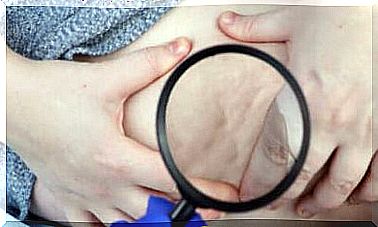5 Effective Ways To Treat Eye Infections

Treatments for eye infections relieve symptoms such as burning and redness. Do you have this problem? Find out how to speed up healing.
Eye infection treatments are designed to relieve symptoms such as redness, inflammation and itching. While they do not directly combat the pathogen causing the problem, they help to bear the discomfort caused by it.

Be aware that this type of infection can lead to complications if not treated properly. Therefore, before using natural methods, you should visit your doctor to determine the cause and severity of the problem.
Ways to deal with eye infections: 5 natural alternatives
Eye infections can be viral or bacterial in origin. But whatever the reasons are equally exhausting. Although they are rarely a serious problem, they cause itching, inflammation, pain and visual disturbances.
Fortunately, they are not difficult to detect, which facilitates their diagnosis and treatment. Here are some natural ways to help reduce fatigue. Don’t miss them!
1. Salt solution
Salt solution is a substance with many uses. You can use it to blow off your nose and for many other occasions.

When applied to the eyes, it helps to cleanse them in a natural way and minimizes the amount of bacteria.
Application
- Dip a cotton swab in the liquid and apply it to the eyelids.
- For a more direct effect, put a few drops in your eye.
- Repeat twice a day.
2. Summer compresses
One of the best ways to infect your eyes is with summer compresses. Their therapeutic effect reduces burning, irritation and itching. What’s more, a 2012 study found that summer compresses help patients with blepharitis by reducing inflammation and scabs on the eyelids.
The American Academy of Ophthalmology recommends the use of summer compresses for conjunctivitis. However, keep in mind that they only have a soothing function and do not treat the disease as such.
Application
- First, dip a cotton ball in lukewarm water.
- Then apply it gently on the eye and pat on it.
- Use a clean cotton ball to avoid introducing pathogens into the eye.
3. Bee honey
In the 2016 study summary, it was found that bee honey is an effective remedy for eye diseases. Thanks to its antibacterial and anti-inflammatory properties, its use is one of the best ways to treat eye infections.

Honey droplets have a positive effect on the treatment of keratoconjunctivitis. This disease occurs as a result of excessive dryness of the cornea.
Application
- Mix a teaspoon of honey with lukewarm water and rinse your eyes with the resulting liquid.
- Optionally, dip a cotton ball in the mixture and apply it to the eyes for 5 minutes.
4. The skylight
Firefly is a medicinal plant recommended for eye infections. Although more studies are needed to confirm its effectiveness and safety, external use can alleviate problems such as conjunctivitis.
Application
- Prepare an infusion of a teaspoon of firefly and a cup of water.
- Then cool, strain and apply to the outer parts of the eye.
- Repeat until you notice an improvement.
5. Tea bags for eye infections

Tea bags are one of the most popular ways to treat eye infections. Thanks to their anti-inflammatory and soothing properties, they effectively reduce swelling, redness and tearing.
Application
- First, choose a tea with soothing properties. You can choose from: chamomile, green tea, Rooibos, black tea and calendula.
- Then brew and cool.
- Take out the bags and put them on the eyelids.
- Leave for 10 minutes.
- If symptoms persist, repeat the treatment.
Do you already know these home remedies? Don’t forget them when you get an eye infection. If symptoms persist or worsen, see your doctor.









